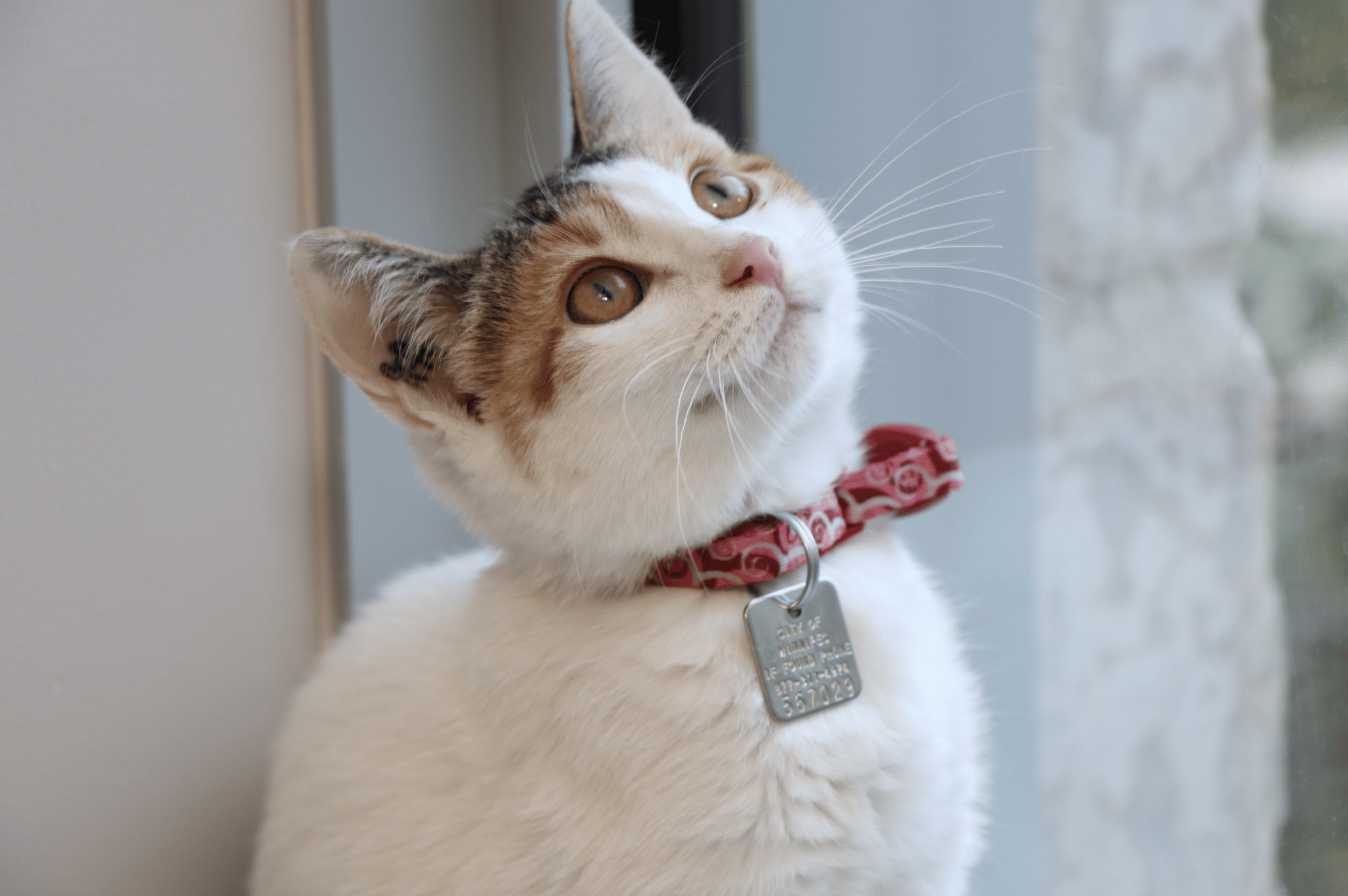
Identification Critical in Reunification of Lost Pets

The Investigations and Emergency Response (IER) Department often attends calls for injured stray animals – they are brought back to the Winnipeg Humane Society so that they can receive appropriate vet care. When an animal is brought back to the shelter, the staff do what they can to try and reunite the stray animal with a potential owner. Sometimes, time is of the essence and it is important for us to find an owner as quickly as we can. Unfortunately, it is not uncommon for the animal to have no identification or to have out of date information, with phone numbers no longer in service. The IER Department would like to remind owners why it is important to ensure your pet has a form of identification, why you should keep your information up to date, and what to do if you have lost a pet.
Collar Tags/City Licensing
The first line of defence is to ensure your pet is licensed through the City of Winnipeg and has an accompanying collar tag. This will ensure any lost pets that still have a tag will have direct contact information or may be reunited via their license number.The Responsible Pet Ownership By-law requires that all dogs and cats over the age of six months be licensed.
Tattoos/ Microchips
Getting your pet tattooed and microchipped is the best way to ensure that you, as the registered owner, will be contacted if your animal is lost. When an animal comes into the shelter, our staff check the animal for a tattoo and scan for a microchip. Getting your pet microchipped is a quick and non-surgical procedure. It is the size of a grain of rice and is typically implanted between the shoulder blades. It is important to recognize that the microchip is a form of identification and not a GPS tracker. If your animal goes missing, the microchip can be scanned at any animal shelter or veterinary clinic. Tattoos and microchips have advantages over collar tags as they cannot be lost or removed.
Keeping Information Up to Date
Tattoos and microchips are only effective if owners actively update their information whenever needed. If you have moved, changed your phone number or rehomed an animal then you should update the identification information to reflect that. If your cat comes in, but the tattoo leads to an old phone number that is no longer in service, it becomes difficult to contact you to let you know where your cat is. It is the owner’s responsibility to always update their information! If you have rehomed an animal, you can change the identification details to the new owner’s information – that way if the pet becomes lost, the new owner can be contacted. It is important for new owners to make sure that it is their information listed under the identification, otherwise the animal is registered to the wrong person. To update any form of identification contact the vet clinic where the tattoo was done, the microchip company, or the Winnipeg Humane Society Intake Department.
Reporting Lost Animals
If your animal goes missing, it is important to make sure you are filing a lost report! For example, if someone calls the shelter with a stray cat with no ID, our staff check lost reports to see if we have anything on file that matches that description and that area. If we have a matching report, we then proceed to contact the person who filed to see if they can confirm ownership so everyone can be reunited! If you have lost or found an animal, contact the appropriate organizations: Winnipeg Humane Society and Facebook groups such as Winnipeg Lost Dog Alert, Winnipeg Lost Cat Alert and Winnipeg Missing and Found Cat Watch. Online lost and found reports for the Winnipeg Humane Society can be found here. Lost/ found reports can be made for any animal – not just cats and dogs. The more organizations you file reports with, the better the chance of someone seeing it and connecting you with your pet. When filing a found/ lost report, try to include a clear photo of the animal! If there are six reports for lost calico cats, a photo will really help assist staff in correctly identifying which calico is which. It is also important to ensure you are contacting the same organizations you filed with to notify if the animal returns home.
A pet with an up to date form of identification benefits everyone! It helps the animal, it helps the owner and it helps our staff.
From the months of March to end of September 2020, the I/ER team attended 1087 animal welfare concerns, 360 animal related emergencies and 214 jobs for a variety of other tasks
For Animal Emergencies within the City of Winnipeg, call 204-982-2020
To report an Animal Welfare Concern within the City of Winnipeg, call 204-982-2028
To reach our Intake Department, call 204-982-2025 option #5
To report an Animal Welfare Concern outside of Winnipeg, call the Animal Care Line at 204-945-8000 or toll free 1-888-945-8001
To report Winnipeg Bylaw concerns (stray dogs, barking complaints), contact 311

